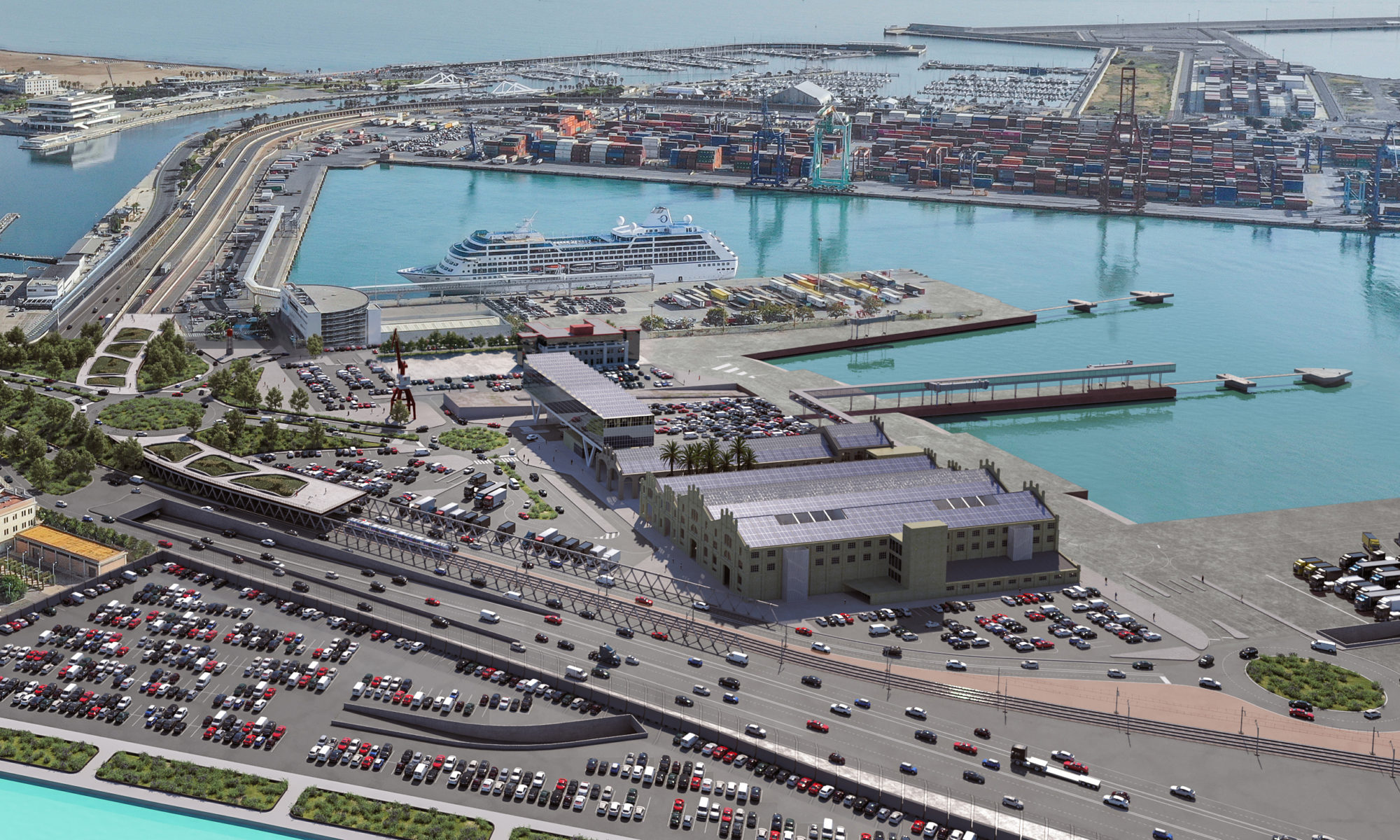Wednesday morning the Contracting Committee of the Port Authority of Valencia met to find out about Baleària’s bid for the tender for the construction and operation of the new passenger terminal in the Port of Valencia and to start studying it. This infrastructure will be located between the Muelle de Poniente and the Muelle del Espigón del Turia, in the area previously occupied by the Unión Naval de Valencia shipyard, and which has approximately 100,000 m2. The concession will be granted for a period of 35 years, extendable to a maximum of 50 years.

The shipping company Baleària, the only company that submitted a bid, plans to build and operate the new passenger terminal in the port of Valencia with a project that guarantees that 100% of the electrical energy required will be produced at the facilities themselves and will be of renewable origin: photovoltaic, wind, renewable hydrogen or biofuel. According to the project presented to the competition of the Port Authority of Valencia, the maritime station will operate with zero contaminating emissions and will bet on the circular economy. The new passenger terminal, destined for both regular ferry lines and cruise ships, has been designed to become a reference of sustainability in the environment of the port of Valencia and to generate added value to the seafront.
Baleària, which aspires to be the concessionaire of the new passenger terminal, will invest over 37 million euros in the infrastructure, which will include some 63,000 square meters and 13,462 of concessional water on the former grounds of the Unión Naval de Levante (UNL), between the Poniente wharf and the Espigón del Turia wharf. The project prepared by Baleària calls for annual traffic of 370,000 passengers in the first five years of operation (which would begin in 2023), which would be around half a million in the following years, with annual growth of 2%, according to the shipping company’s conservative estimate. The company estimates that, during the life of the operation contract, the Port Authority of Valencia will collect around 70 million euros for the obligatory taxes on ships, passengers, and goods.
The former UNL facilities will house the terminals for regular line passengers and cruise passengers, with separate and independent spaces and operations. Four ferry and cruise quays will be provided. A 215-meter central dock: with berths on both sides for ferries and a north and south dock for cruise ships. All will be prepared to accommodate ro-ro and ro-pax vessels. The new infrastructure of the Port of Valencia for international passenger traffic will have two esplanades of about 15,000 and 6,000 meters for pre-boarding from the south and west accesses. The project includes an Innovation and Eco-efficiency Centre and a space for cultural promotion.
Global Ports, the partner for cruises.
Global Ports Holding (GPH), the world’s largest cruise operator, will oversee managing the cruises. It will be committed to a notable reduction in noise, as well as to recycling 100% of its waste in the biomethane plant to be built in that area, which will also digest ship and terminal waste to obtain biogas. This biofuel will feed a fleet of vehicles that will eventually be replaced by others that are electric, rechargeable at the supply points set up in the two car parks. There will be four times more recharging points than required by the regulations.
The Baleària project includes the preservation of the heritage elements of this environment that stand out for their historical value, as determined by the Demetrio Ribes chair of industrial archaeology. In addition to the warehouses, two cranes will be preserved, the water tower and the slipways of the former UNL shipyards.
Utor: “A lighthouse of sustainability and designed for people”
The president of the company, Adolfo Utor, has emphasized that the new maritime station “will have a green heart, intelligent spirit and will be a lighthouse of sustainability in the port of Valencia”. “It will be a milestone for our company, a modern space, a passenger terminal in line with the eco-efficient policy in which Baleària is immersed with its smart ships and its commitment to ODS”. “We have committed to a rational infrastructure, designed for people, committed to proximity and quality of life for passengers, the city, and the neighbourhood of Nazareth. There is no better way to generate wealth than not compromising the well-being of future generations”, emphasizes Baleària’s top executive.
The project also contemplates a training centre of the Baleària Business School (EdEB) with offers in different areas of the maritime sector and especially aimed at the Nazareth district, within an action plan to involve the main actors and interest groups.
Baleària, which is the number one shipping company in the port of Valencia in terms of the volume of passengers, vehicles, and road freight, has been operating on the Turia quay since 2007 and actively participates in various environmental projects together with the port community, such as the Green C. Ports, the Loop-Ports Project, Security & Safety or the Linghive 2 vessels demand: green and smart links.
Source: Port of Valencia
Additional information about the Port of Valencia at CruiseMapper